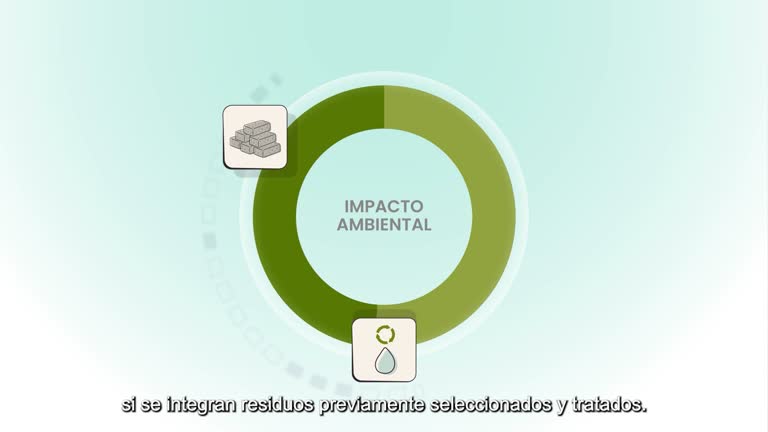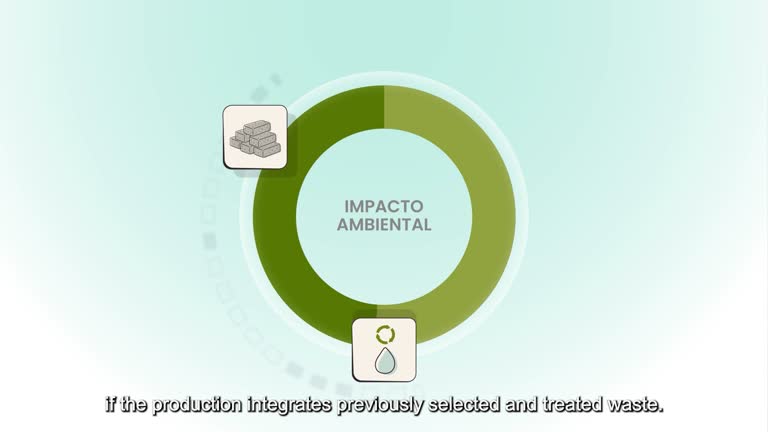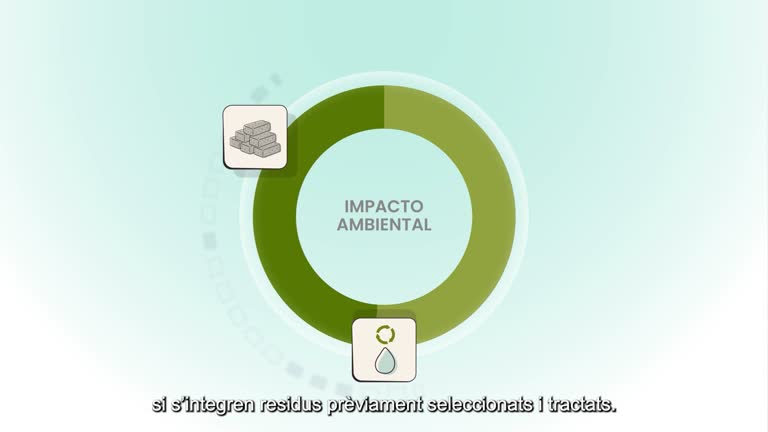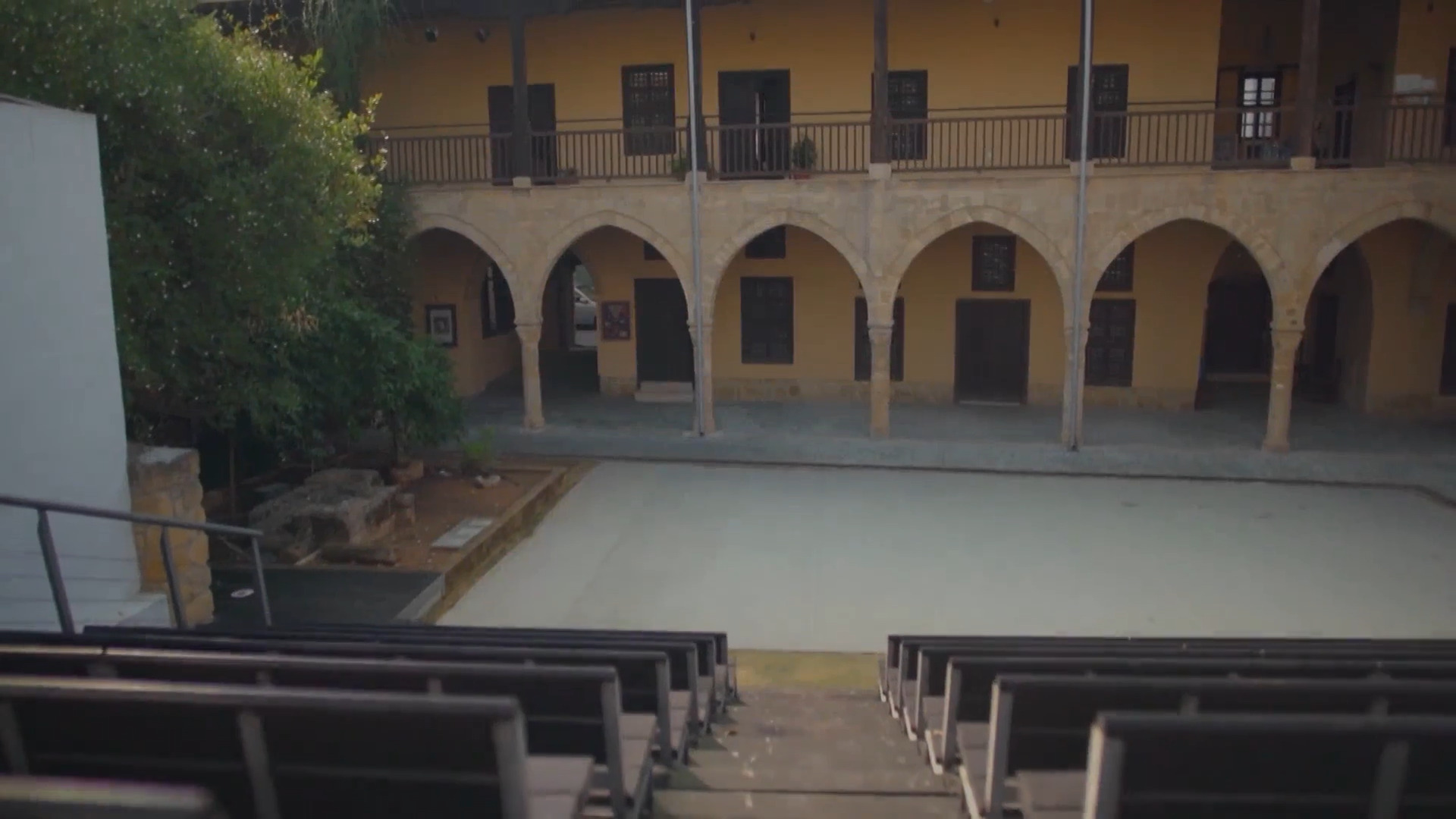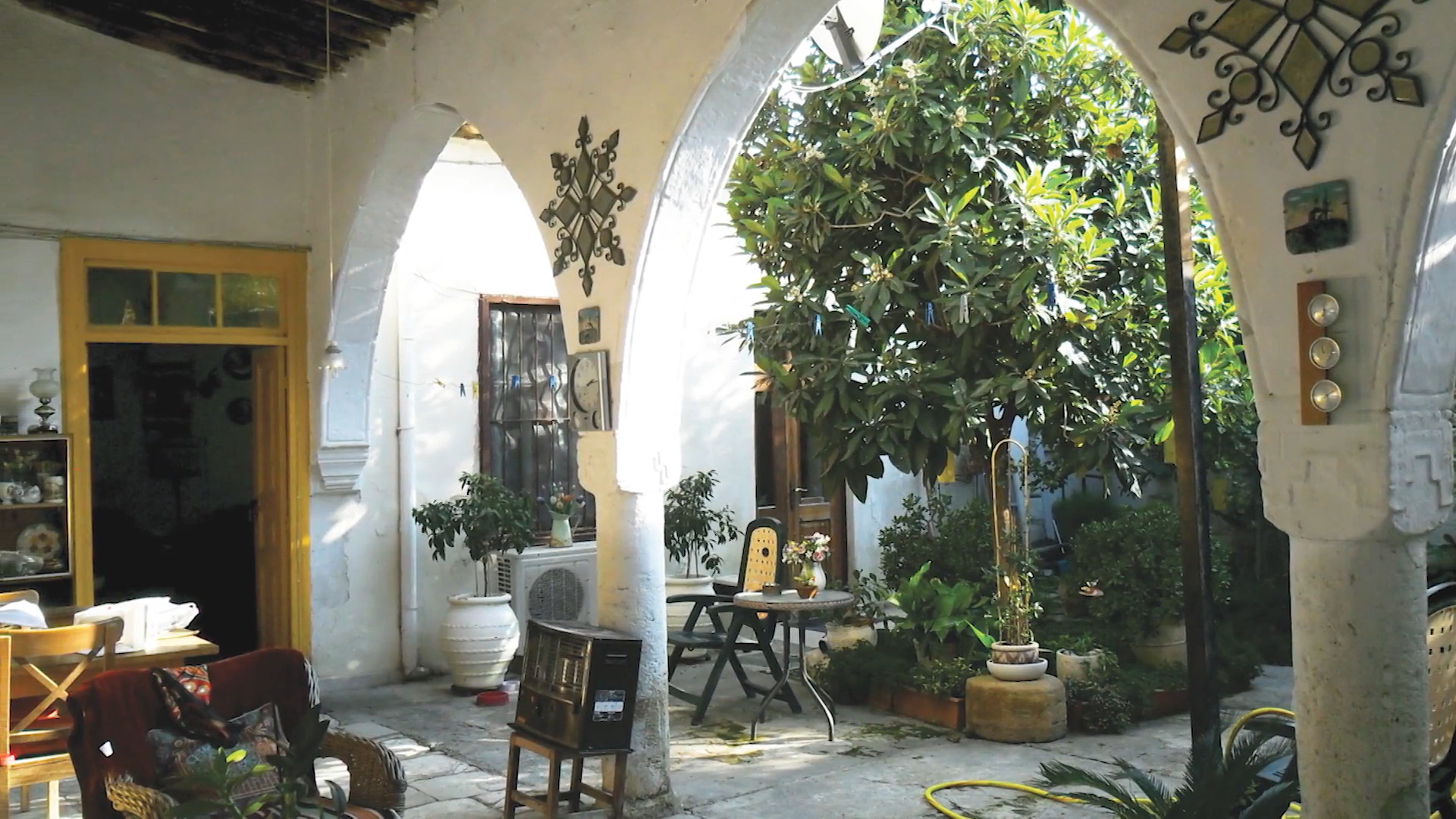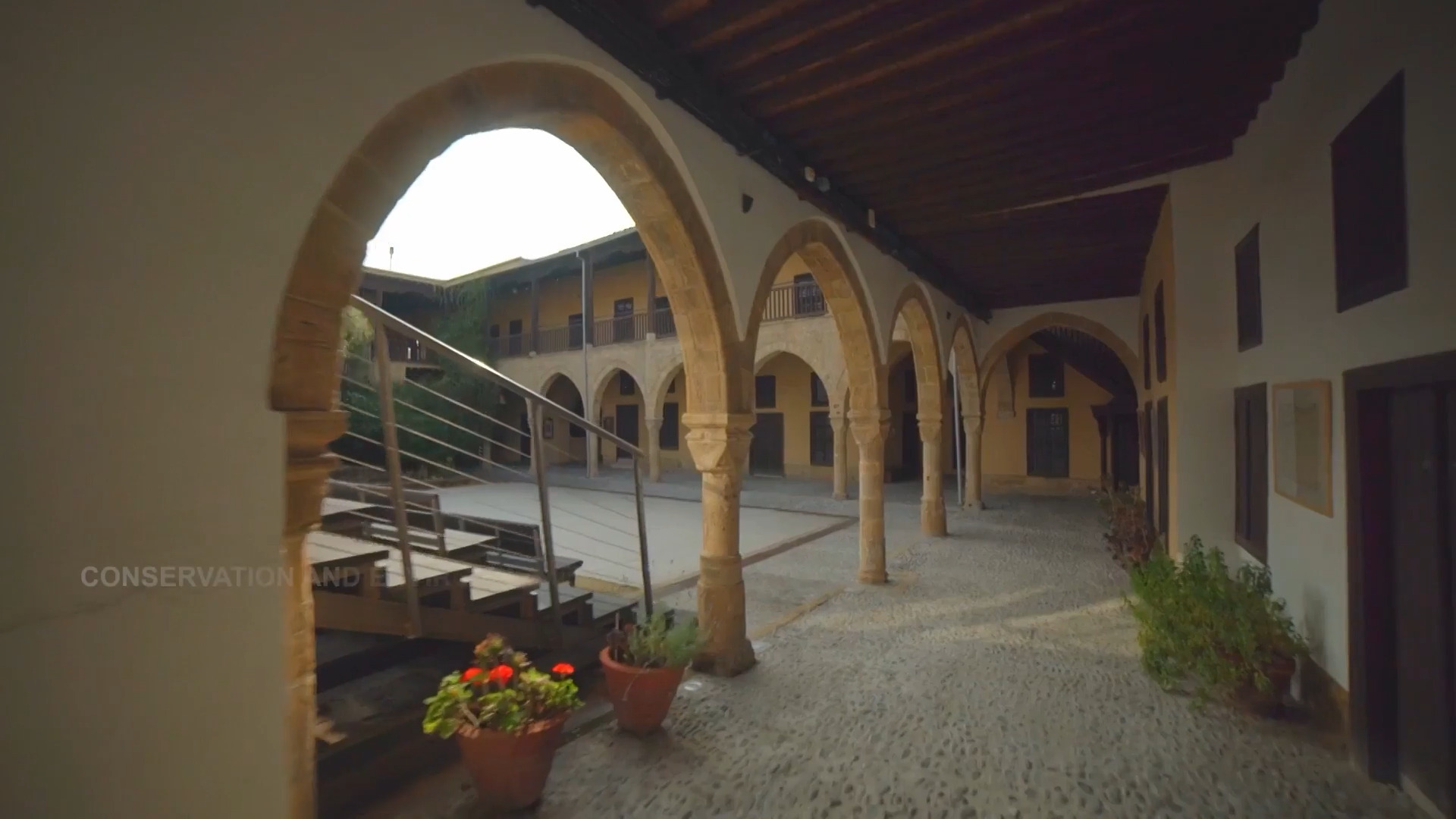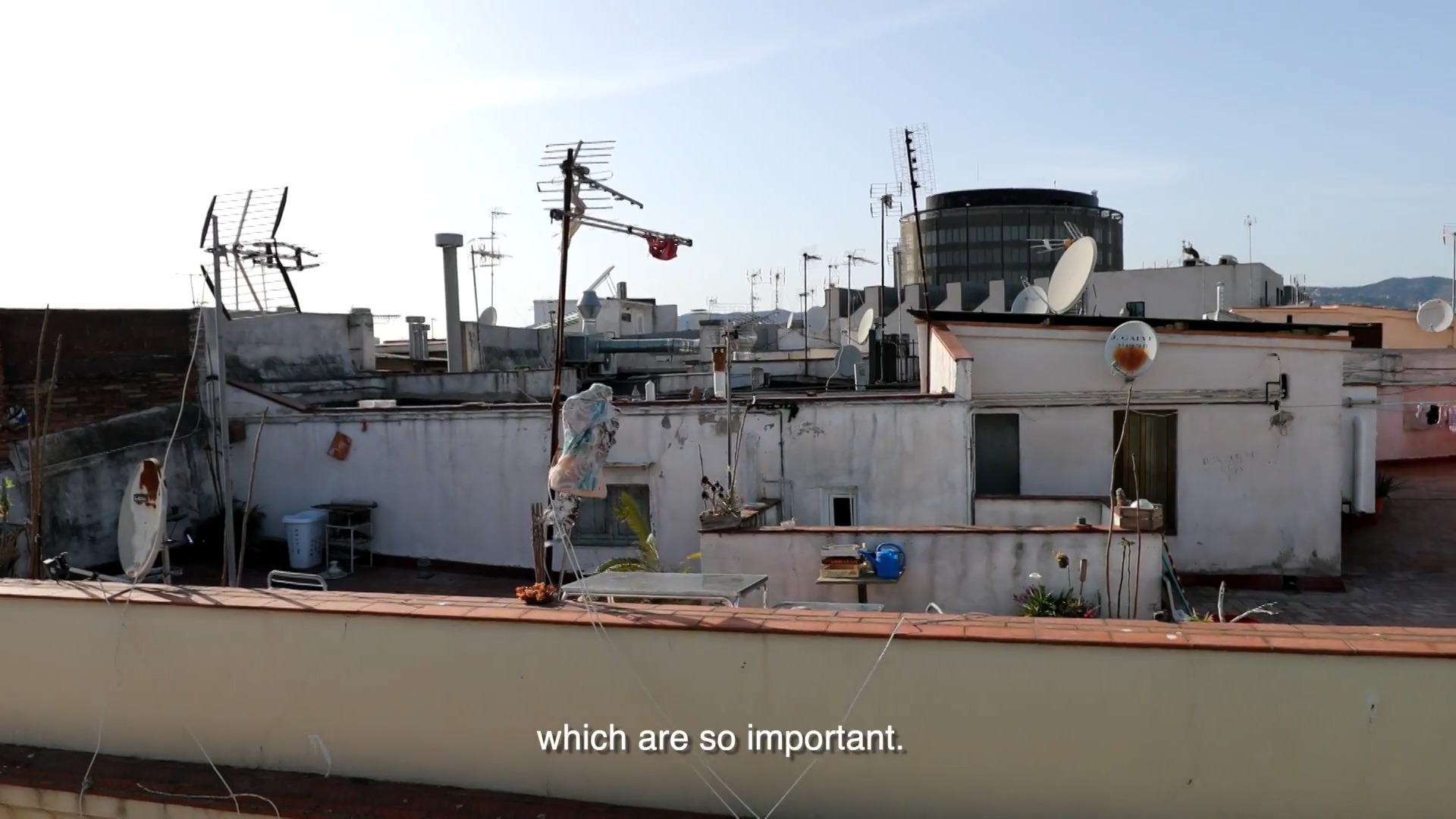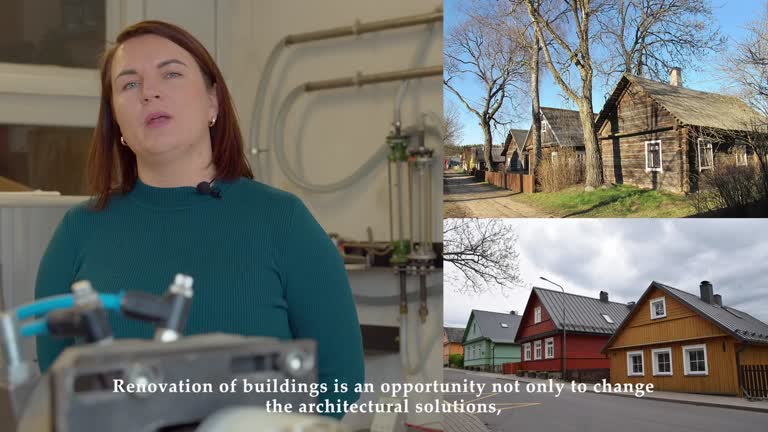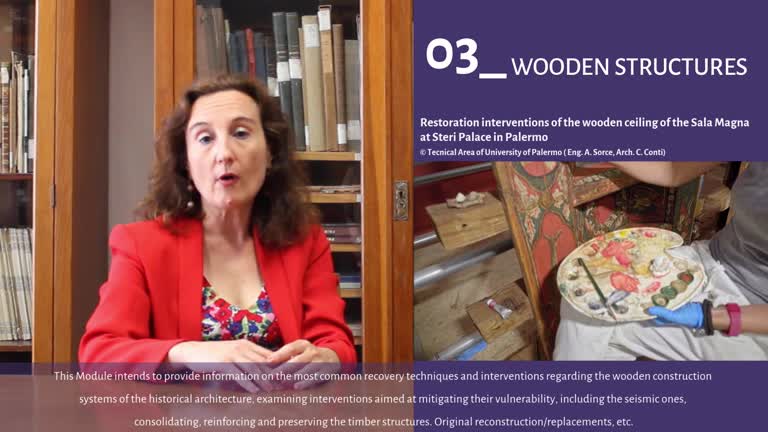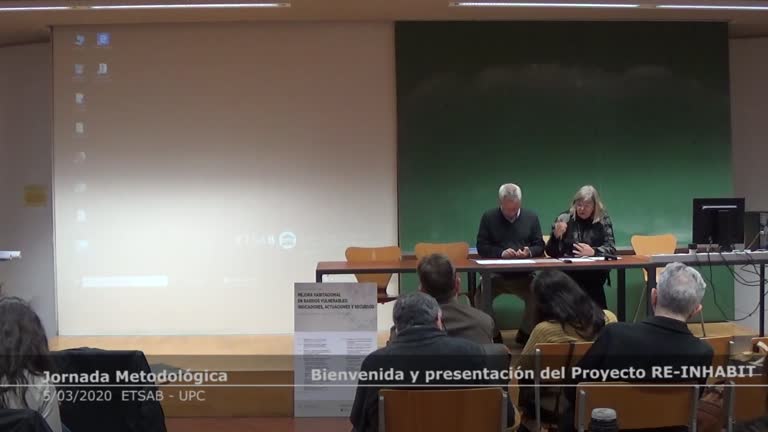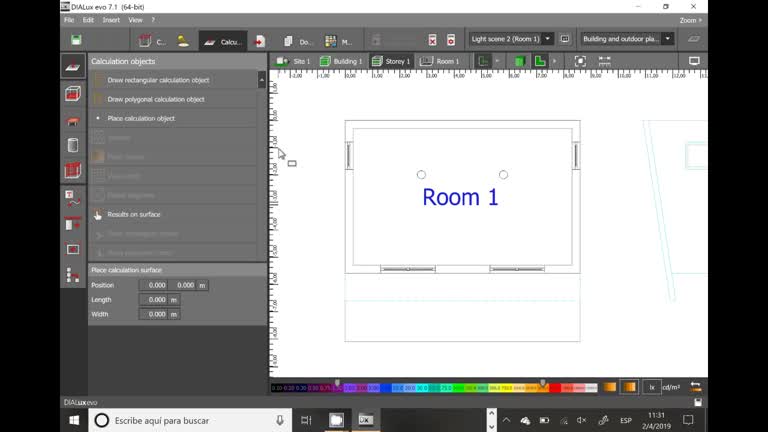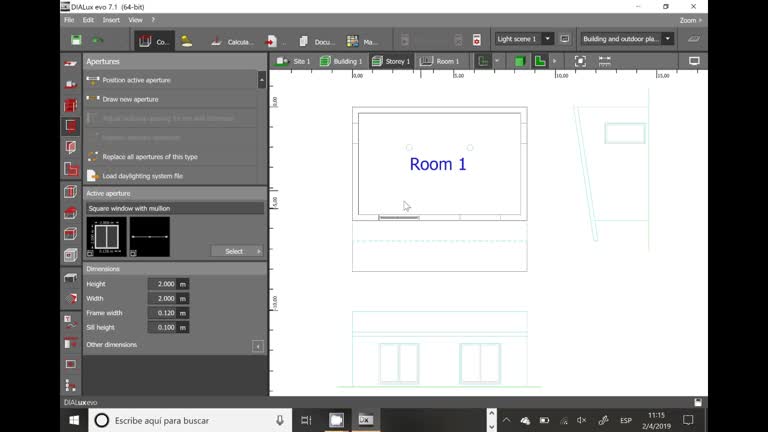Objectes multimèdia amb l’etiqueta: Departament de Tecnologia de l'Arquitectura
Resultats de la cerca
Projecte Waste-Based Intelligent Solar-control devices for Envelope Refurbishment (WiSeR) - (Espanyol)
Accés obert
8 d’oct. 2025
El projecte WiSeR —Waste-based Intelligent Solar-control-devices for Envelope Refurbishment— desenvolupa façanes intel·ligents creades a partir de residus per millorar l’eficiència energètica dels edificis i reduir-ne l’impacte ambiental.
Aquest projecte del Departament de Tecnologia de l'Arquitectura, forma part de la convocatòria “Proyectos de Transición Ecológica y Transición Digital 2021” del Ministeri de Ciència i Innovació, amb el suport dels fons NextGenerationEU.
El sector de la construcció genera prop del 40% de les emissions de carboni i del consum energètic mundial. WiSeR proposa una nova manera de construir i rehabilitar edificis, reutilitzant més del 70% dels residus i aplicant principis d’economia circular i ecosuficiència.
El projecte combina tecnologia, disseny i participació ciutadana per desenvolupar elements de façana multifuncionals que controlen la llum i la temperatura, millorant el confort interior i contribuint a la neutralitat climàtica europea 2050.
Les noves solucions es validaran en edificis escolars, implicant infants i comunitats educatives en tallers i processos participatius per dissenyar els dispositius de control solar del futur.
WiSeR és un pas endavant cap a una arquitectura més intel·ligent, circular i sostenible.
Aquest projecte del Departament de Tecnologia de l'Arquitectura, forma part de la convocatòria “Proyectos de Transición Ecológica y Transición Digital 2021” del Ministeri de Ciència i Innovació, amb el suport dels fons NextGenerationEU.
El sector de la construcció genera prop del 40% de les emissions de carboni i del consum energètic mundial. WiSeR proposa una nova manera de construir i rehabilitar edificis, reutilitzant més del 70% dels residus i aplicant principis d’economia circular i ecosuficiència.
El projecte combina tecnologia, disseny i participació ciutadana per desenvolupar elements de façana multifuncionals que controlen la llum i la temperatura, millorant el confort interior i contribuint a la neutralitat climàtica europea 2050.
Les noves solucions es validaran en edificis escolars, implicant infants i comunitats educatives en tallers i processos participatius per dissenyar els dispositius de control solar del futur.
WiSeR és un pas endavant cap a una arquitectura més intel·ligent, circular i sostenible.
Projecte Waste-Based Intelligent Solar-control devices for Envelope Refurbishment (WiSeR) - Anglès
Accés obert
7 d’oct. 2025
The WiSeR project — Waste-based Intelligent Solar-control-devices for Envelope Refurbishment — develops intelligent façades made from waste materials to improve buildings’ energy efficiency and reduce their environmental impact.
This project is part of the “Proyectos de Transición Ecológica y Transición Digital 2021” call by the Ministry of Science and Innovation, supported by NextGenerationEU funds.
The construction sector accounts for around 40% of global carbon emissions and energy consumption. WiSeR proposes a new way of building and refurbishing structures by reusing more than 70% of waste materials and applying principles of circular economy and eco-efficiency.
The project combines technology, design, and citizen participation to develop multifunctional façade elements that control light and temperature, enhancing indoor comfort and contributing to Europe’s 2050 climate neutrality goals.
The new solutions will be tested in school buildings, engaging children and educational communities through workshops and participatory processes to design the solar-control devices of the future.
WiSeR represents a step forward towards a more intelligent, circular, and sustainable architecture.
This project is part of the “Proyectos de Transición Ecológica y Transición Digital 2021” call by the Ministry of Science and Innovation, supported by NextGenerationEU funds.
The construction sector accounts for around 40% of global carbon emissions and energy consumption. WiSeR proposes a new way of building and refurbishing structures by reusing more than 70% of waste materials and applying principles of circular economy and eco-efficiency.
The project combines technology, design, and citizen participation to develop multifunctional façade elements that control light and temperature, enhancing indoor comfort and contributing to Europe’s 2050 climate neutrality goals.
The new solutions will be tested in school buildings, engaging children and educational communities through workshops and participatory processes to design the solar-control devices of the future.
WiSeR represents a step forward towards a more intelligent, circular, and sustainable architecture.
Projecte Waste-Based Intelligent Solar-control devices for Envelope Refurbishment (WiSeR)
Accés obert
7 d’oct. 2025
El projecte WiSeR —Waste-based Intelligent Solar-control-devices for Envelope Refurbishment— desenvolupa façanes intel·ligents creades a partir de residus per millorar l’eficiència energètica dels edificis i reduir-ne l’impacte ambiental.
Aquest projecte del Departament de Tecnologia de l'Arquitectura, forma part de la convocatòria “Proyectos de Transición Ecológica y Transición Digital 2021” del Ministeri de Ciència i Innovació, amb el suport dels fons NextGenerationEU.
El sector de la construcció genera prop del 40% de les emissions de carboni i del consum energètic mundial. WiSeR proposa una nova manera de construir i rehabilitar edificis, reutilitzant més del 70% dels residus i aplicant principis d’economia circular i ecosuficiència.
El projecte combina tecnologia, disseny i participació ciutadana per desenvolupar elements de façana multifuncionals que controlen la llum i la temperatura, millorant el confort interior i contribuint a la neutralitat climàtica europea 2050.
Les noves solucions es validaran en edificis escolars, implicant infants i comunitats educatives en tallers i processos participatius per dissenyar els dispositius de control solar del futur.
WiSeR és un pas endavant cap a una arquitectura més intel·ligent, circular i sostenible.
Aquest projecte del Departament de Tecnologia de l'Arquitectura, forma part de la convocatòria “Proyectos de Transición Ecológica y Transición Digital 2021” del Ministeri de Ciència i Innovació, amb el suport dels fons NextGenerationEU.
El sector de la construcció genera prop del 40% de les emissions de carboni i del consum energètic mundial. WiSeR proposa una nova manera de construir i rehabilitar edificis, reutilitzant més del 70% dels residus i aplicant principis d’economia circular i ecosuficiència.
El projecte combina tecnologia, disseny i participació ciutadana per desenvolupar elements de façana multifuncionals que controlen la llum i la temperatura, millorant el confort interior i contribuint a la neutralitat climàtica europea 2050.
Les noves solucions es validaran en edificis escolars, implicant infants i comunitats educatives en tallers i processos participatius per dissenyar els dispositius de control solar del futur.
WiSeR és un pas endavant cap a una arquitectura més intel·ligent, circular i sostenible.
Smart Rehabilitation 3.0 Project: Conservation and environmental sustainability of vernacular architecture
Accés obert
3 de març 2022
English subtitles.
This online course (MOOC) is part of a wider effort to bridge the knowledge gap between the offer of higher education in most European universities and the practical skills and competencies needed in the rehabilitation sector. Actually, it is one out of 4 training courses developed in the ErasmusPlus SMART Rehabilitation 3.0 Project. The course offered by the University of Cyprus provides an introduction to the environmental features and strategies of vernacular architecture encountered in both urban and building scales. Particularly, this course highlights vernacular heritage significance, incorporated lessons regarding sustainability, threats related to physical degradation and lack of maintenance, as well as international regulatory framework regarding vernacular dwellings. Also, the course presents the methodology approach and good practices for environmental friendly conservation, enhancing the passive performance of vernacular buildings and the integration of passive and active systems.
This online course (MOOC) is part of a wider effort to bridge the knowledge gap between the offer of higher education in most European universities and the practical skills and competencies needed in the rehabilitation sector. Actually, it is one out of 4 training courses developed in the ErasmusPlus SMART Rehabilitation 3.0 Project. The course offered by the University of Cyprus provides an introduction to the environmental features and strategies of vernacular architecture encountered in both urban and building scales. Particularly, this course highlights vernacular heritage significance, incorporated lessons regarding sustainability, threats related to physical degradation and lack of maintenance, as well as international regulatory framework regarding vernacular dwellings. Also, the course presents the methodology approach and good practices for environmental friendly conservation, enhancing the passive performance of vernacular buildings and the integration of passive and active systems.
Smart Rehabilitation 3.0 Project: Conservation and environmental sustainability of vernacular architecture
Accés obert
3 de març 2022
This online course (MOOC) is part of a wider effort to bridge the knowledge gap between the offer of higher education in most European universities and the practical skills and competencies needed in the rehabilitation sector. Actually, it is one out of 4 training courses developed in the ErasmusPlus SMART Rehabilitation 3.0 Project. The course offered by the University of Cyprus provides an introduction to the environmental features and strategies of vernacular architecture encountered in both urban and building scales. Particularly, this course highlights vernacular heritage significance, incorporated lessons regarding sustainability, threats related to physical degradation and lack of maintenance, as well as international regulatory framework regarding vernacular dwellings. Also, the course presents the methodology approach and good practices for environmental friendly conservation, enhancing the passive performance of vernacular buildings and the integration of passive and active systems.
Smart Rehabilitation 3.0 Project: Conservation and environmental sustainability of vernacular architecture
Accés obert
2 de març 2022
Greek Subtitles.
This online course (MOOC) is part of a wider effort to bridge the knowledge gap between the offer of higher education in most European universities and the practical skills and competencies needed in the rehabilitation sector. Actually, it is one out of 4 training courses developed in the ErasmusPlus SMART Rehabilitation 3.0 Project. The course offered by the University of Cyprus provides an introduction to the environmental features and strategies of vernacular architecture encountered in both urban and building scales. Particularly, this course highlights vernacular heritage significance, incorporated lessons regarding sustainability, threats related to physical degradation and lack of maintenance, as well as international regulatory framework regarding vernacular dwellings. Also, the course presents the methodology approach and good practices for environmental friendly conservation, enhancing the passive performance of vernacular buildings and the integration of passive and active systems.
This online course (MOOC) is part of a wider effort to bridge the knowledge gap between the offer of higher education in most European universities and the practical skills and competencies needed in the rehabilitation sector. Actually, it is one out of 4 training courses developed in the ErasmusPlus SMART Rehabilitation 3.0 Project. The course offered by the University of Cyprus provides an introduction to the environmental features and strategies of vernacular architecture encountered in both urban and building scales. Particularly, this course highlights vernacular heritage significance, incorporated lessons regarding sustainability, threats related to physical degradation and lack of maintenance, as well as international regulatory framework regarding vernacular dwellings. Also, the course presents the methodology approach and good practices for environmental friendly conservation, enhancing the passive performance of vernacular buildings and the integration of passive and active systems.
Smart Rehabilitation 3.0 Project: Auto-rehabilitación asistida y mejora de las condiciones de habitabilidad y seguridad
Accés obert
10 de febr. 2022
Este curso en línea (MOOC) forma parte de un esfuerzo más amplio para salvar la brecha de conocimiento existente entre la oferta de educación superior en la mayoría de las universidades europeas y las habilidades prácticas y competencias necesarias en el sector de la rehabilitación. De hecho, es uno de los cuatro cursos de formación desarrollados en el Proyecto ErasmusPlus de rehabilitación SMART 3.0.
El objetivo del curso es proporcionar herramientas útiles (técnicas e intervenciones exitosas) para una "autorehabilitación asistida". El MOOC está dirigido principalmente a técnicos y profesionales y muestra actuaciones de rehabilitación “bottom-up”, es decir en sentido ascendente ya que se centran en las necesidades y capacidades de la población residente. Los contenidos incluyen intervenciones para mejorar la calidad del aire interior y la salud de los edificios, la seguridad y la prevención de riesgos, la flexibilidad y versatilidad de los espacios, las mejoras para la adecuación de los espacios, de la accesibilidad, del confort higrotérmico, de la iluminación e incluso la elaboración de guías de uso.
El objetivo del curso es proporcionar herramientas útiles (técnicas e intervenciones exitosas) para una "autorehabilitación asistida". El MOOC está dirigido principalmente a técnicos y profesionales y muestra actuaciones de rehabilitación “bottom-up”, es decir en sentido ascendente ya que se centran en las necesidades y capacidades de la población residente. Los contenidos incluyen intervenciones para mejorar la calidad del aire interior y la salud de los edificios, la seguridad y la prevención de riesgos, la flexibilidad y versatilidad de los espacios, las mejoras para la adecuación de los espacios, de la accesibilidad, del confort higrotérmico, de la iluminación e incluso la elaboración de guías de uso.
Smart Rehabilitation 3.0 Project: Wooden built heritage as a renewable resource for local development
Accés obert
10 de febr. 2022
This online course (MOOC) is part of a wider effort to bridge the knowledge gap between the offer of higher education in most European universities and the practical skills and competencies needed in the rehabilitation sector. Actually, it is one out of 4 training courses developed in the ErasmusPlus SMART Rehabilitation 3.0 Project. The course provides a comprehensive analysis of the renewal of wooden heritage (both in terms of value and technology), combining heritage protection requirements with modern needs and technical possibilities.
The MOOC is intended for technicians and professionals working with the heritage of wooden buildings, as well as owners or managers. Interdisciplinary cooperation and the search for common solutions by all stakeholders is particularly important in modern heritage protection. We aim to convey an interdisciplinary international practice that allows us to address alternatives for the renewal of wooden architecture by assessing resources, internal and environmental factors, technological suitability and the circumstances of their application.
The MOOC is intended for technicians and professionals working with the heritage of wooden buildings, as well as owners or managers. Interdisciplinary cooperation and the search for common solutions by all stakeholders is particularly important in modern heritage protection. We aim to convey an interdisciplinary international practice that allows us to address alternatives for the renewal of wooden architecture by assessing resources, internal and environmental factors, technological suitability and the circumstances of their application.
Smart Rehabilitation 3.0 Project: Approaches, techniques and interventions for the rehabilitation or restoration of architectural heritage
Accés obert
10 de febr. 2022
This online course (MOOC) is part of a wider effort to bridge the knowledge gap between the offer of higher education in most European universities and the practical skills and competencies needed in the rehabilitation sector. Actually, it is one out of 4 training courses developed in the ErasmusPlus SMART Rehabilitation 3.0 Project. The course is aimed at providing tools (techniques and interventions) useful to show and explain virtuous examples of the recovery/restoration practice.
This course is based on an academic approach to solve different technical problems that may arise in the rehabilitation/restoration of the traditional architectural heritage, with a particular focus on the Mediterranean area.
The MOOC is intended as an operational tool of comprehension of the most popular and innovative recovery techniques widely used in the recovery of historical and traditional architecture, offering general examples and also cases of originality.
This course is based on an academic approach to solve different technical problems that may arise in the rehabilitation/restoration of the traditional architectural heritage, with a particular focus on the Mediterranean area.
The MOOC is intended as an operational tool of comprehension of the most popular and innovative recovery techniques widely used in the recovery of historical and traditional architecture, offering general examples and also cases of originality.
Benvinguda i presentació del projecte "RE-INHABIT Retos Investigación 2019-2021"
Accés obert
5 de març 2020
Benvinguda a la Jornada i presentació del projecte "RE-INHABIT Retos Investigación 2019-2021", a càrrec de Pilar García-Almirall (Departament Tecnologia de l'Arquitectura ETSAB | UPC) i Pere Joan Ravetllat (Projectes Arquitectònics ETSAB | UPC)
Disseny dels aspectes lumínics naturals d'un espai individual amb DIAlux. Part II: Escenes de llum, càlcul i sortida de dades
Accés obert
3 d’abr. 2019
Part II del vídeotutorial basat amb el programari DIAlux de disseny professional. Presentació a càrrec de Judit López Besora, Professora del Departament de Tecnologia de l'Arquitectura ETSAB.
Disseny dels aspectes lumínics naturals d'un espai individual amb DIAlux. Part I: Modelat espai
Accés obert
3 d’abr. 2019
Part I del vídeotutorial basat amb el programari DIAlux de disseny professional. Presentació a càrrec de Judit López Besora, Professora del Departament de Tecnologia de l'Arquitectura ETSAB.


